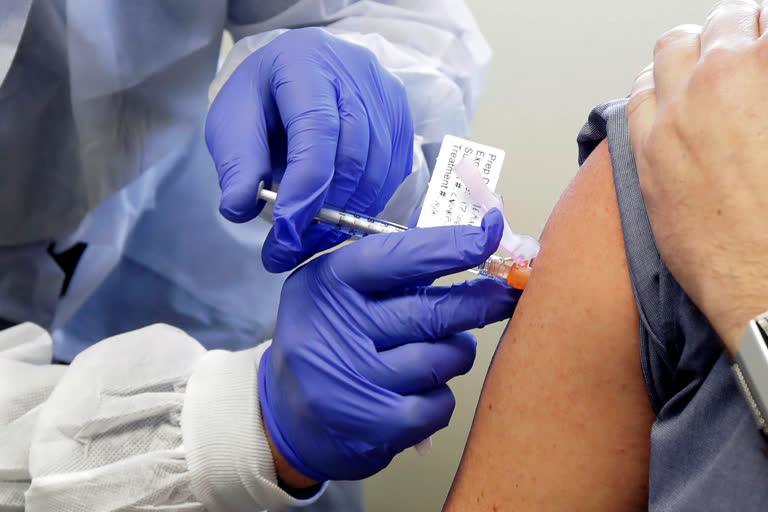London: The University of Oxford said on Friday that its researchers have begun recruiting adults and children for advanced human trials of a COVID-19 vaccine that will involve up to 10,260 volunteers across the UK.
The initial human trials which began in April involved more than 1,000 volunteers. The immunisations in the initial trials have been completed and the follow-up is currently underway. The advanced study will involve Phase 2 and Phase 3 trials.
The Phase 2 part of the study involves expanding the age range of the people the vaccine is assessed in to include a small number of older adults and children -- aged between 5-12 years, 56-69 years, and those over 70 years.
For these groups, researchers will be assessing the immune response to the vaccine in people of different ages, to find out if there is variation in how well the immune system responds in older people or children.
Read | Virus cases drop to zero in China for 1st time
Phase 3 of the study involves assessing how the vaccine works in a large number of people over the age of 18.
This group will assess how well the vaccine works to prevent people from becoming infected and unwell with Covid-19.
Adult participants in both Phase 2 and Phase 3 groups will be randomised to receive one or two doses of either the ChAdOx1 nCoV-19 vaccine or a licenced vaccine (MenACWY) that will be used as a control for comparison, the University of Oxford said.
The Oxford vaccine is made from a virus (ChAdOx1), which is a weakened version of a common cold virus (adenovirus) that causes infections in chimpanzees, which has been genetically changed so that it can't replicate in humans.
Read | WHO warns vaccination programs at risk
"The clinical studies are progressing very well and we are now initiating studies to evaluate how well the vaccine induces immune responses in older adults and to test whether it can protect the wider population," Andrew Pollard, head of the Oxford Vaccine Group, said in a statement.
"We are very grateful to the huge support of the trial volunteers in helping test whether this new vaccine could protect humans against the pandemic coronavirus," Pollard added.
Drugmaker AstraZeneca recently joined forces with the UK government to support the Oxford University's vaccine programme.
AstraZeneca on Thursday said that it received the support of more than USD 1 billion from the US Health Departments' Biomedical Advanced Research and Development Authority (BARDA) for the development, production, and delivery of University of Oxford's upcoming Covid-19 vaccine, starting this autumn.
To assess whether the vaccine works to protect the volunteers from Covid-19 in the advanced trails, statisticians in the Oxford team will compare the number of infections in the control group to the number of infections in the vaccinated group.
"For this purpose, it is necessary for a small number of study participants to develop Covid-19. How quickly we reach the numbers required will depend on the levels of virus transmission in the community," the University of Oxford said.
"If transmission remains high, we may get enough data in a couple of months to see if the vaccine works, but if transmission levels drop, this could take up to 6 months," it added.
(IANS)



